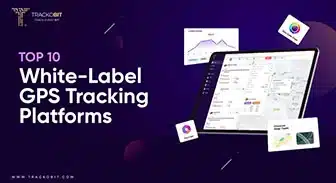-
TrackoBit
Manage commercial vehicles with the new-age Fleet Management Software
TrackoBit -
TrackoField
Streamline your scattered workforce with Field Force Management Software
TrackoField -
Features Resources
-
Blog
Carefully curated articles to update you on industrial trends. -
White Paper
Insightful papers and analysis on essential subject matters. -
Glossary
Explore an alphabetical list of relevant industry terms. -
What’s New
Get TrackoBit & TrackoField monthly updates here. -
Case Study
Explore the cases we solved with our diverse solutions. -
Comparisons
Compare platforms, features, and pricing to find your best fit.
-
About Us
Get to know TrackoBit: our team, ethos, values, and vision. -
Careers
Join the most dynamic cult of coders, creatives and changemakers. -
Tech Support
Learn about our technical support team and services in detail. -
Events
Check out the exhibitions where we left our marks and conquered. -
Contact Us
Connect with us and let us know how we can be of service.
How Can Fleet Businesses Calculate Their Cost per Mile?
- Author:Drishti Dua
- Read Time:8 min
- Published:
- Last Update: December 9, 2025
Table of Contents
Toggle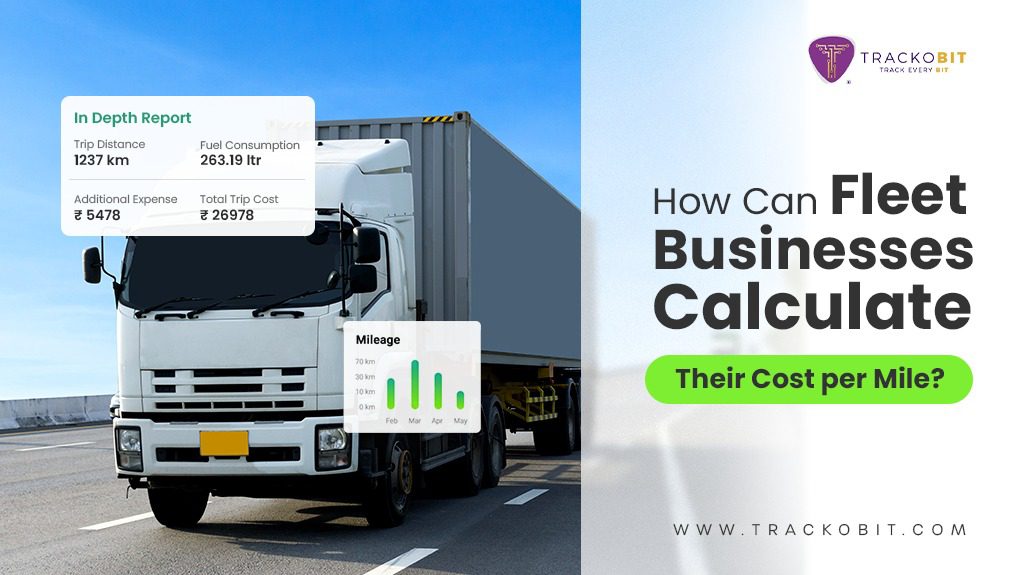
Fleet businesses can struggle with their fleet budgeting. A good start for this process is to calculate their cost per mile. Learn how a fleet management system can aid this calculation.
Table of Contents
Toggle
Imagine you have to allocate the budget for your fleet operations. Can that be possible without knowing how much money you spend running your fleet, to begin with? Of course not! Predicting a fleet’s expenditure is futile without any form of data to base these predictions.
So how hard can it be to collect a fleet’s data?
Very much!
A fleet management system is your hero in this case. It not only collects data for fleet managers but also simplifies it into insightful reports. This can help businesses calculate their cost per mile accurately. But this calculation goes through a series of steps that we will be exploring through this blog!
Mileage vs Average Fuel Consumption
The definition of mileage is often said to be the distance covered by a vehicle in one litre of fuel considering that there are no road hurdles affecting the speed of the vehicle. But what if we told you that what you say is the mileage is actually the average fuel consumption of a vehicle?
Surprised? We’ll elaborate!
The word mileage consists of two words, ‘mile+age’. This makes understanding the meaning of this word very easy. If we look for a simple explanation, mileage refers to the total distance a vehicle covers and is reflected in the odometer. This mileage is used to calculate the average fuel consumption of the vehicle.
Factors Affecting Vehicle’s Cost per Mile
Calculating the cost per mile is difficult if fleet managers do not have the following metrics. After all, there need to be some values which will go into the formula for the end result:
Fixed Costs
Calculating the cost of every mile is difficult when there is no documentation of business expenditures. Some of these expenditures are fixed rates that go towards the operation of a fleet business. This can include the rent for their office, the salary of their permanent employees and so on.
As the name suggests, fixed costs are the investments that make a business. This is why there is not much that can be done to fleet operations that can help reduce these costs. How can there be any management when managers do not have a place to operate from or there are no vehicles available to manage in the first place? On the plus side, managers do not have to worry about regulating these costs. Thus no time is dedicated to maintaining efficiency.
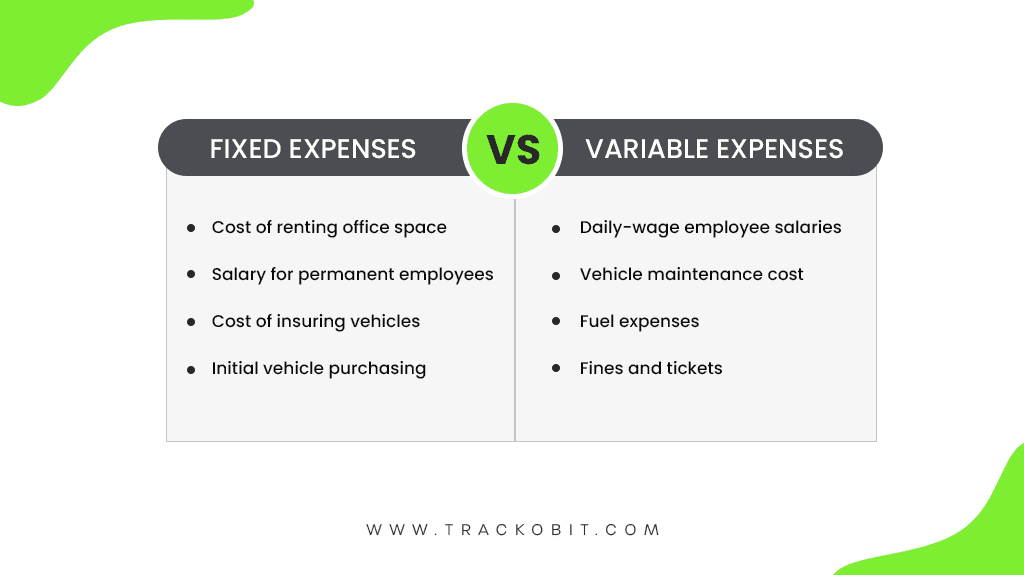
Variable Costs
A fleet’s variable costs come next and theft holds the power to make or break the business. This is why the managers have the added responsibility of not just managing the fleet, but also budgeting their operations. Some of the costs that make up the variable cost of operating a fleet business include fuel consumption, the cost of maintaining vehicles and so on.
The designing and maintenance of a management plan become a necessity for managers as they need to ensure that their business stays profitable. For fleets operating in expensive sectors like the last mile, these expenses can have an impact on the overall supply chain cost. A major part of the variable costs of a fleet business can be the miles they cover. Let us have a look at the ways that the miles a vehicle covers can impact the expenses of a fleet business.
Miles Driven
Just like there are two kinds of expenses to account for in determining cost per mile, there are also two different kinds of miles. You’ll need to track both compensated miles and deadhead miles or leverage a vehicle tracking system to do it for you. Compensated mileage refers to the miles you drive when you’re en route to make a delivery.
Deadhead mileage, on the other hand, refers to the miles you drive after deliveries have been completed and the truck is empty. Sometimes called “empty miles,” this typically isn’t being paid for by a customer as part of the shipping and delivery fee but rather is an unavoidable cost to trucking companies that can lead to additional wear and tear on a vehicle.
Read Blog – Importance of ePOD in Last-Mile Delivery?
How to Calculate Your Fleet’s Cost per Mile?
Now that we have all the elements required to calculate the cost per mile of a vehicle, the next step is to, well… calculate. But simply applying a formula for calculation is not the only concern of managers. Let us look at the factors to the be considering when calculating the cost of the vehicle’s travel:
Document The Mileage of Your Vehicle
Calculating the cost of your vehicle’s travel can be tough without managers knowing the distance that their vehicle covers. They also need to know how much fuel their vehicle consumes for their tasks. This will give them an estimate of the vehicle’s fuel costs. But simply trying to see how much fuel your vehicle uses on one specific day can lead to inaccurate data. Several factors can affect a vehicle’s fuel consumption, some of which include:
- Condition of the roads a vehicle uses to travel.
- Weight of the vehicle’s load.
- Driving practices adopted by the driver.
The tracking period for managers to collect and study data can differ from business to business. This makes the calculation of a vehicle’s mileage accurate and thus streamlines the calculation of cost per mile.
Study Your Business and Determine Costs
Fuel cost is not the only thing that can be affecting your business’ budget. Several other factors can also contribute to the cost per mile of your vehicles. Listing all these expenditures and adding them to the cost of running the fleet is the next step for managers. Some of the parameters that they need to track to get an accurate idea of a fleet’s cost are:
- Cost of Resources: A business needs several resources to operate properly. This can include a place for parking their vehicles and for managers to supervise their vehicles. This can mean that they have to include the cost of their rent and other bills like electricity. They also have to pay for any investment like automation software that goes towards the business operations.
- Vehicle Maintenance: A vehicle can be costly to run. Other than their fuel consumption, managers also need to calculate the money they spend on repairing and replacing vehicles. But a straight bill does not cover all the expenses of vehicle downtime. It also affects the fleet’s productivity and can cost them an opportunity cost.
Calculate Your Expenses by Mileage
The third and final step after you have collected the data for calculating the cost of running your fleet is to find out the cost per mile.

Fleet businesses can use their cost per mile to deduce if any factor is affecting their expenditures. The data collected to calculate this cost can help managers see if there is any loophole in their options. Formulating optimization strategies can be easy when businesses know where their fleet is lacking.
How Can Managers Cut Down Their Fleet’s Operational Cost per Mile?
In today’s economy, businesses operate to make profits. This is why their primary concern is to eliminate anything that might be affecting their budget negatively. Naturally, the next step is for managers to look into ways to reduce their operational costs. Let us look at some of the essential conservation strategies that businesses must apply:
✅ Conserving Fuel: As we mentioned above, fuel can be a money guzzler for fleet businesses. This means that the most effective way for them to cut down their cost per mile is by targeting their fuel consumption. Reducing fuel consumption can be executed in a number of ways we have mentioned in the next section of the blog.
✅ Maintaining Vehicle Health: Regular vehicle maintenance keeps the mechanic away! Fleet managers who make sure that their vehicles get checked frequently can save a lot on repairs and replacements. Fleet management software provides automated alerts that remind managers of any upcoming check-ups. Thus, no missed maintenance equals reduced breakdowns.
✅ Reducing Harsh Driving: You might already know that harsh driving can be a leading cause of high fuel consumption. But this is not the only negative of harsh driving as it can also damage a vehicle. Reducing harsh driving can prevent accidents and also ensure that the vehicles do not depreciate a lot.
Can Fleet Businesses Reduce Their Fuel Consumption?
Investing in a fleet management system can be very rewarding for fleet businesses. It can help businesses budget their fleet operations and decide the amount that should go towards fixed and variable costs. But the best part is that this system can also help businesses adhere to their set budget! Let us look at some of the solutions that make this process possible:
- Fuel Monitoring System: The system allows managers to rack their vehicle’s fuel levels and detect any pilferage via alerts. They can also learn the pattern of their consumption and see where their fleet might be losing money!
- Driver Behavior Monitoring System: Fleet management system allows managers to see if their drivers are indulging in any harsh driving practices. This can range from overspeeding, and braking to idling as well. Reducing such activities helps cut fuel consumption and also ensures less expenditure on vehicle damage.
- Servicing and Maintenance: Manual management can be very chaotic and can lead to skipped maintenance of vehicles. But the fleet monitoring system makes sure that managers have alerts of their vehicles’ servicing via automated reminders.
- Route Optimisation: Losing money because of choosing unfavourable and dangerous routes can be harmful to the budgeting of the business. Route optimisation solutions create the most optimised routes for vehicles without any issues! All managers need to do is add their desired halts.
Read Blog – 5 ways to manage your fleet’s fuel consumption
Coming to an End
One of the most basic tasks of a business is to track its expenses. Fleet businesses are no exception to this rule. But simply adding up the expenses of a fleet cannot help you create budgets, especially in an environment where expenses can change frequently. One example of this can be the fuel costs constantly rising.
Cost per mile calculation can be the first step a fleet business takes towards properly ensuring that their businesses adhere to a set budget. But as we mentioned above, that is not possible without the use of a reliable fleet management system. The system can help you not only track your expenses, but also ensure a decline in operational costs.
Drishti Dua, a Content Contributor at TrackoBit has a rich background in literature and professional expertise in SaaS and technology writing. She has carved her niche in the space of Geospatial techn... Read More
Related Blogs
-
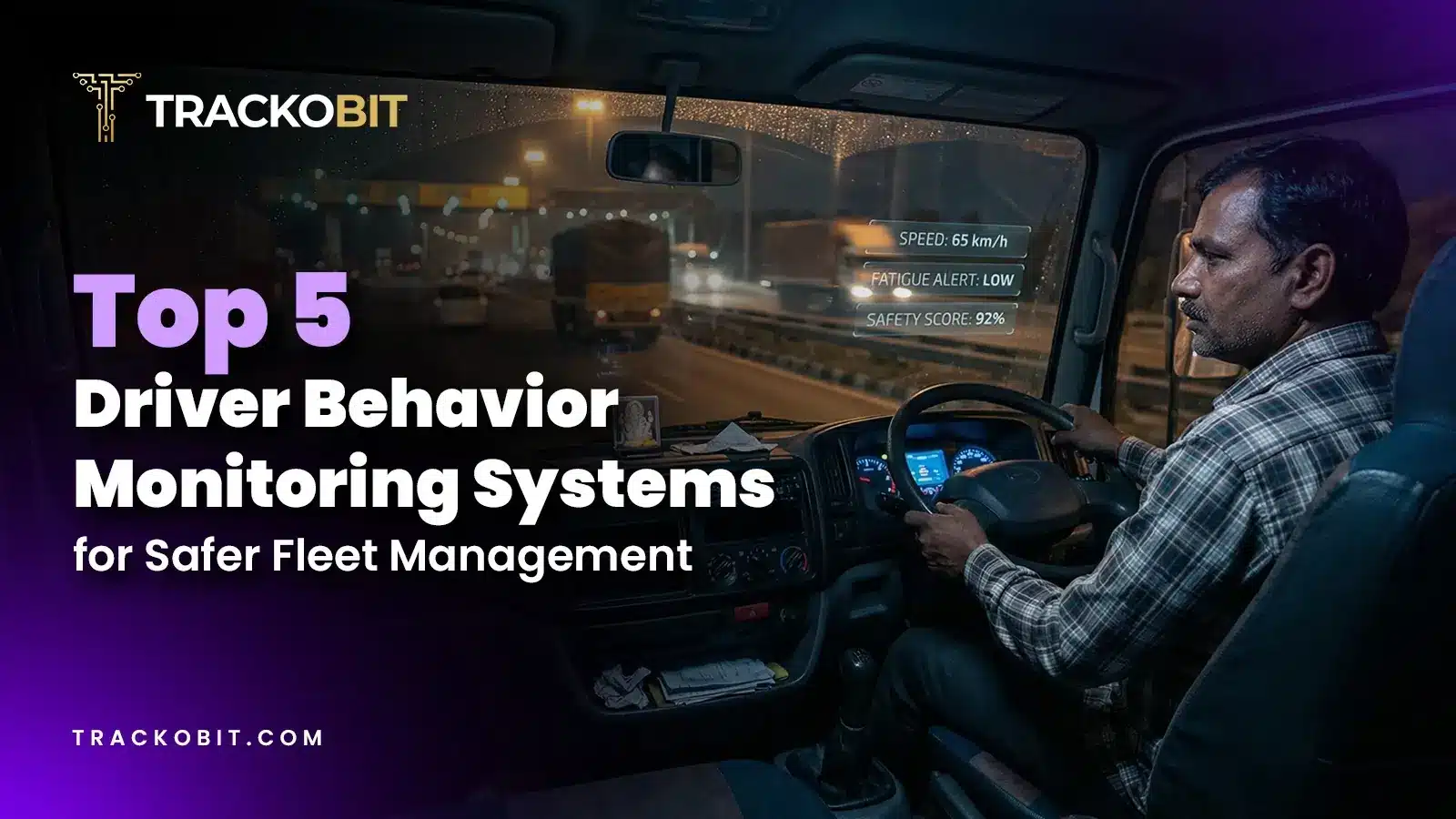
5 Best Driver Behavior Monitoring Systems for 2026
Tithi Agarwal February 23, 2026Having the best driver behavior monitoring system is a necessity as it helps you ensure driver safety and optimize operational…
-

Why is Driver Drowsiness Detection System Important for Fleet Management?
Shemanti Ghosh February 4, 2026A driver drowsiness detection system is critical for fleet management. It helps prevent fatigue-related accidents and reduces operational risks through…
-
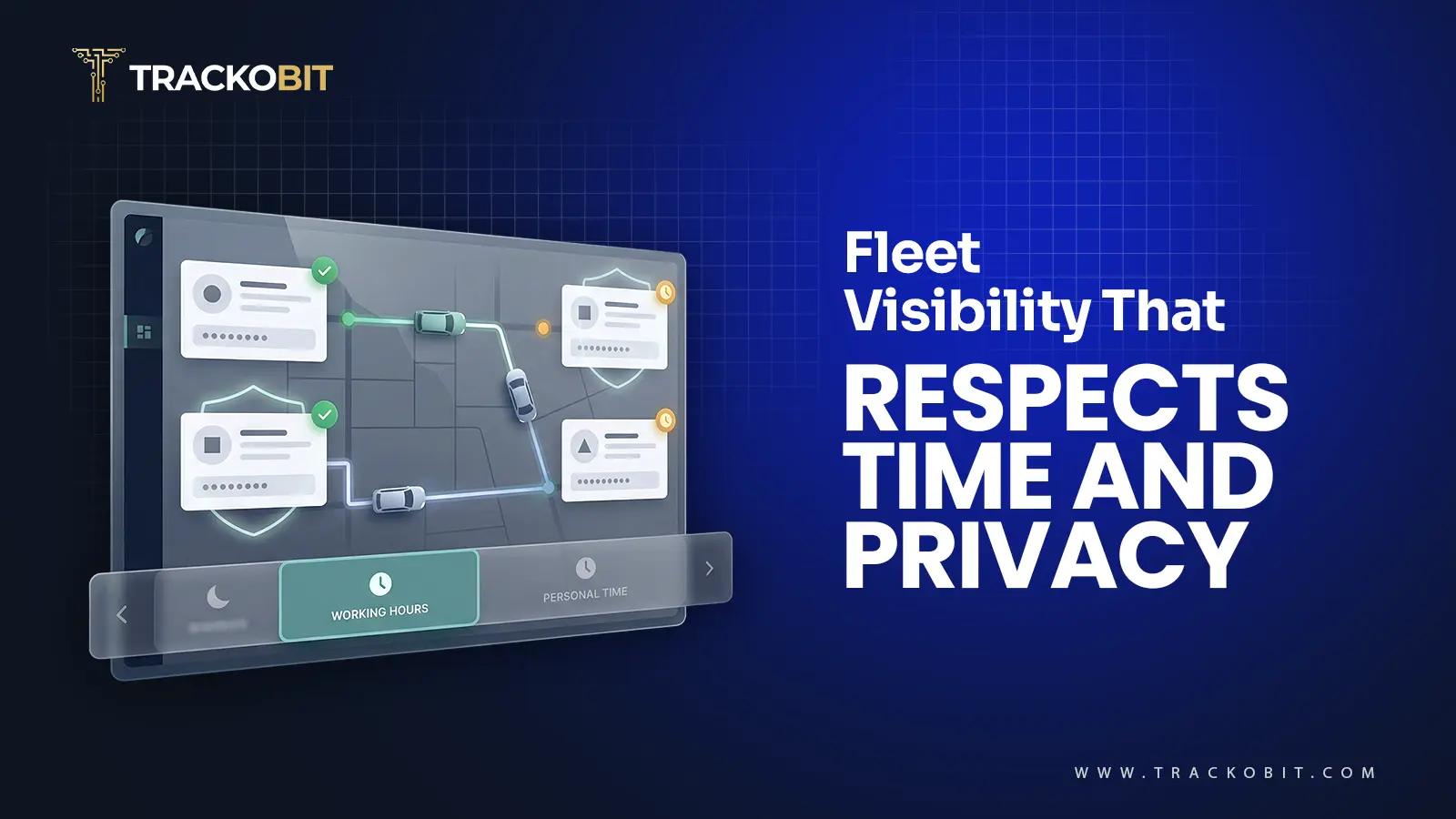
When Tracking Needs a Clock: Rethinking Fleet Visibility
Tithi Agarwal December 24, 2025Read on to understand why fleet tracking works better when it follows working hours. Because visibility should support operations, not…
-

What Makes TrackoBit’s Video Telematics Software Truly Next-Gen?
Shemanti Ghosh December 17, 2025TrackoBit’s video telematics software blends smart video intelligence with full server control. The result? Superior fleet reliability and safety.

Subscribe for weekly tips to optimize your fleet’s potential!
Your inbox awaits a welcome email. Stay tuned for the latest blog updates & expert insights.
"While you're here, dive into some more reads or grab quick bites from our social platforms!"Stay Updated on tech, telematics and mobility. Don't miss out on the latest in the industry.
We use cookies to enhance and personalize your browsing experience. By continuing to use our website, you agree to our Privacy Policy.



































